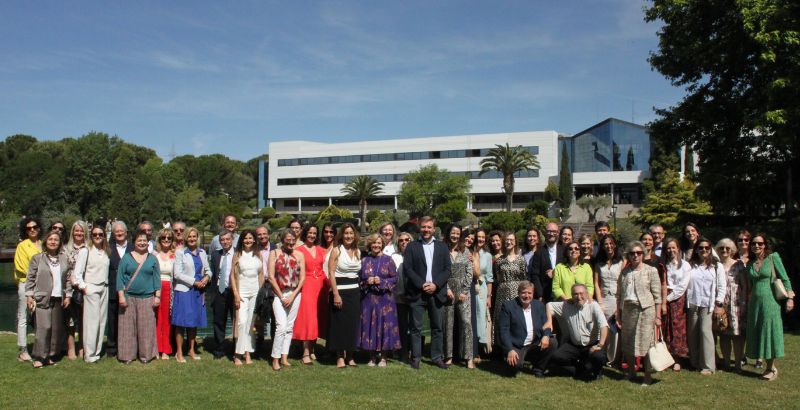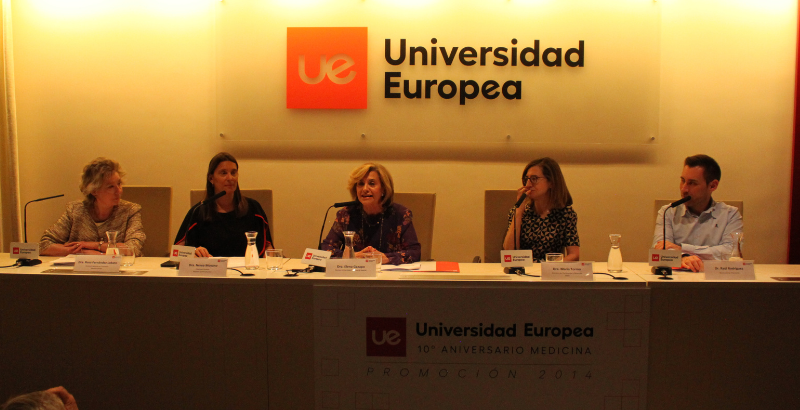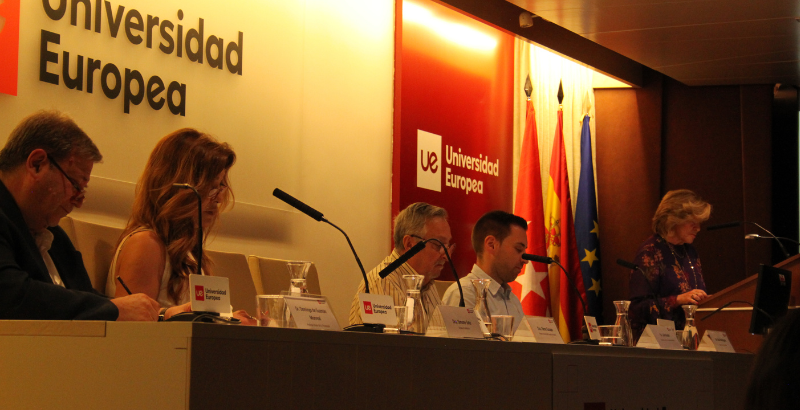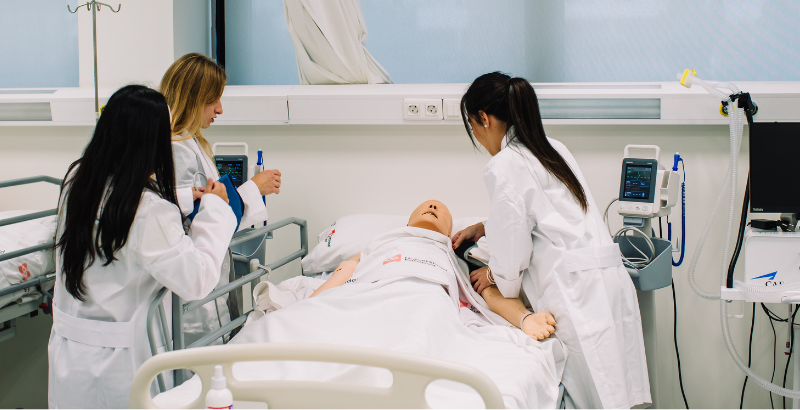Representatives of the main hospital groups in Madrid, the rector of the Universidad Europea de Madrid and dean of the first year of Medicine, Elena Gazapo; the current dean of Medicine, Simone Sato; and distinguished professors and alumni of the first edition of the degree programme

Universidad Europea dresses up to celebrate the tenth anniversary of the first graduating class of Medicine. The degree is one of the most necessary qualifications for society and one of the most recognised degrees of the Institution, which this year has positioned itself in the CyD Ranking as the second best private university that teaches Medicine.
The event was attended by the Manager of Getafe Hospital, Dr Rosa Fernández Lobato; Nerea Moyano, Managing Director of Quirónsalud Sur Hospital and Regional Director of Teaching and Research; and Dr María Tormo, Director of Planning and Development at the ASISA Foundation. The event was also attended by the Rector of Universidad Europea de Madrid, Dr Elena Gazapo; Dr Simone Sato, Dean of Medicine; the Professor of the first year of Medicine, Dr Luis Buzón, as sponsor; one of the teachers of the first year, Dr Domingo de Guzmán Monreal; and other alumni, teachers and students who are studying or have studied medicine at the institution. But that's not all, the content creator with nearly two million followers on social networks, Marius Lekker, also attended.

Elena Gazapo, who was dean of the first class of Medicine, thanked all the teachers, students and health institutions that have accompanied the Medicine degree over the years. She also highlighted interdisciplinarity as one of the keys to the success of this degree: ‘I was very clear that doctors do not work alone, that it was very important to have a faculty made up of all health professionals’. As he stressed, it is important to work more as a team with the patient at the centre: ‘Nothing in my professional career as a doctor, nor in my personal and family history, would have made me think that one day I would have been here, trying to develop a less theoretical academic model, more attached to the patient, to the profession, and a model that would help future doctors not to miss some of the skills that I missed in my first shift. So there are communication skills, primary care, interprofessional education, etc.’.

The finishing touch was provided by the Dean of Medicine at Universidad Europea, Simone Sato. The Dean of Medicine showed the Institution's commitment to continue advancing towards excellence in one of the most recognised degrees of the European University: ‘Today we reaffirm our commitment to continue training doctors with excellence, prepared to face the challenges and demands of society, both in Spain and worldwide. We face a world in constant change, where medicine plays a fundamental role in people's quality of life. It is our duty to continue innovating, researching and educating to meet these challenges.
For years, Universidad Europea has been implementing the One Health concept, which places it at the forefront in the training of health professionals. This concept integrates human, animal and environmental health, promoting an interdisciplinary and collaborative approach that is essential in modern medicine.
One of the main characteristics that distinguish Universidad Europea is its Experiential Academic Model. The use of simulated environments provides students with real-world, hands-on experience from the first year of their degree. These simulated environments are safe and designed to replicate real clinical situations, allowing students to live, learn and experience in a controlled and supervised context.

In addition to simulations, students have the opportunity to carry out supervised clinical internships in large hospitals. These internships allow students to apply the knowledge acquired in the classroom and simulated environments in real-life situations, interacting with patients and working alongside experienced professionals. This combination of theory and practice prepares students to face real-world challenges and makes them competent and well-prepared professionals at the end of their studies.